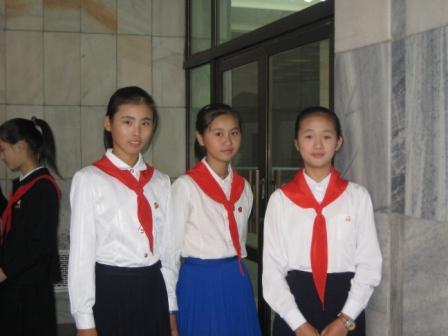A Visit to North Korea, Part 5

By Patrick Chovanec
(See earlier installments here.)
The most tantalizing mystery about North Korea is its people. How do they live their lives, and what do they really think? Their belief system seems so alien, so isolated from all we know about the rest of the world, we wonder whether they have any sense of the disconnect or not – and if so, what they make of it.
Ever since I returned from my trip to the DPRK last year, one of the first questions friends always ask me is whether we ever had the chance to talk or interact with regular people there. The short answer is no. North Korea is not the kind of place where any foreigner – even the ones stationed there for months or years on diplomatic assignment – can just walk up and chat with a typical person on the street, or swing by a local pub for a round with the locals. To even attempt to do so would be courting real trouble – for the unwelcome foreigner, perhaps, but far more seriously for the hapless Korean counterpart who would fall under immediate suspicion of being a spy or worse.
It’s a strange isolating feeling, visiting a country where nobody can talk to you, except your guides — and even they tend to be pretty cagey. As our bus passed through the streets of Pyongyang, taking us from one officially sanctioned tourist site to the next, we craned our necks to catch glimpses of what might or might not be typical daily life outside the window. Pyongyang, we knew, is hardly typical. The country’s capital is a showcase, filled with grand statues of godlike leaders and fearless patriots, imposing monuments – such as the oversized replica of the Arc de Triomphe that greets you on the way in from the airport — and vast open plazas devoted to celebrating the State. There is no such thing as a Pyongyang “native.” Its population, carefully controlled at 2 million, is selected from the most politically loyal and useful citizens all across the country, and is subject to regular turnover. After the army, of course, residents receive the best food and housing in the country, and priority access to fuel and electricity.



